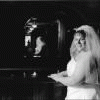Search the Community
Showing results for 'autoimmune'.
Found 1,088 results
-
<p>I have completely fallen off the wagon and am only down a total of 20 pounds since I was banded 1-25-06!</p> <p> </p> <p>I have no fill at all. And sometimes even have difficulty eating with just an empty band. I have fibromyalgia along with other autoimmune problems. Once in a while I will have a whole body system swell; once it was joints, then respiratory, and even digestive. I got discouraged and would only eat what went down without a problem.</p> <p> </p> <p>I am unmotivated and fat. I need help and encouragement. Most of all, I need a starting point. I don't know what to do first.</p> <p> </p> <p>Thanks for all of your input in advance. All comments are welcome.</p> <p> </p> <p>Darl<img src="http://www.LapBandTalk.com/images/smilies/cry.gif" border="0" alt="" title="Think" smilieid="15" class="inlineimg" /></p>
-


Tell me your story I can't pick a MX surgeon!!
short c replied to noahsmom's topic in Weight Loss Surgeons & Hospitals
Ok folks, I think Bubblebutt has some good points, as do the rest of you. There is a phenomenon in marketing that is known as post purchase rationalization, which describes buyer behaviour after having invested a great deal of time, money and or emotion in a purchase decision. Its why, when you ask someone how they like the new car they just bought, they will invariably always say they 'love it.' Does that mean then that all the posts we read here, where people have had good experiences with one doc or another are invalid as sources of information. NO. Those who have posted that each of us needs to do our own research, figure out what's the most important to us and make a decision that feels good for us, as thinking and feeling beings, are right. This is not a popularity contest, or club. We all know, if we're honest with ourselves that this is a highly competitive market! It is big business and no matter how good a surgeon is, technically, the communication of that expertise is bound to be difficult. If we as patients seek to reduce our 'risk' to our health and longevity, I believe we cannot get stuck in the stats. It is a well known maxim in the business world that figures can lie. Let's get past the numbers and really look at what matters- the quality of overall care which plays a huge role in final outcomes - probably much bigger than who has done the most surgeries, has the lowest complications rates etc. Remember that complication rates can be easily 'adjusted 'by docs who simply only take low risk patients. I have an autoimmune disorder- I am probably at a higher risk of having an erosion - I don't really know, but I imagine there are some of us walking around with risk factors we don't even know about ( I found out after my lap-band surgery!) Should docs refuse to take us on because we'll afect their stats? BUt here's the thing that I think is really useful- when one reads on the forum that someone has had a problem with their doc and they do post it, it means that they've had to swallow their pride, and say, oops, perhaps I chose poorly. Perhaps the criteria I used weren't the ones I should have focussed so heavily on. I made a mistake and I am willing to admit that so others might be smarter than I was. (I did that in other posts - I focussed on the numbers. I became a number.) I am not pro any particular doc, but I am now unimpressed with docs who rest on their laurels or their 'numbers' and consider that "follow-up is not cost effective." I've written on these boards positively about a doc that wasn't mine because I got follow up from his team, even though I , at the last minute, opted for their competitor. There is a philosophy of patient care there that I admire. so lets take it back to what this is really about - let's have a discussion about what factors one really should consider seriously when one is choosinga lap-band surgeon and his/her practice. I didn't get into this for the short term. I expect to have this lap band for the next 10-15 years of my life - possibly to replace it with a new one then... I wonder - are there any Mx patients reading these boards who were banded 3 or 4 or 10 years ago? What, in retrospect are the important things to consider? I've said it elsewhere. This is not brain surgery and it is a relatively simple procedure. Sure it can be botched, but most of the Mx docs have enough experiene to do this thing in their sleep. That's what puts into into the 'commodity' category and as consumers, we need to look at the other supporting stuff that comes with the surgeon whose skills we are purchasing..... that's enough for now.... -
Hi Everyone, My name is Barbara and I live in NJ. My sirgery date will be next week, Sept 7th. After struggling many years, especially due to health isseus and several years on high dose Prednisone to stay alive due to autoimmune diseases, my weight soared, and I am now taking my life back. I have lost weight prior to surgery and continue to lose but am really looking forward to stable weight loss with the lapband. . Now is my time. I have 7 autoimmune diseases and founded a non profit organization to help people like me about 2 1/2 years ago. My whole life revolves around helping others and now is the time to take care of myself. I look forward to hearing everyone's stories. If I can ever help just yell. Barb PS..... Any Vegetarians have the surgery? I ask because eating as a vegetarian after surgery will be different than it is now. Home
-
Figgered I'd nip in and drop a post... I got banded by Dr. Woody Denham at Evanston Northwestern on July 16 2007. Incidentally, very nice of him to do Medicaid work. I'm a bit a-typical here... frankly, I've been told (and tend to believe) that I would have been reverting down to my 'natural' weight with time (and was already on my way, prior to surgery). That said, enough was enough, and I'm perfectly ecstatic that I had it done. There's a bit of a story there... and it smacks of 'vicious circle' coupled with quack doctors ... this is long (just feel like writing it down right now Essentially, I was born (or acquired soon after) the autoimmune disease Celiac Sprue. That's a nasty little thing whereby the body's immune system ends up attacking glutens (wheat (flour), rye and barley) - and any organs in contact with the glutens. In hindsight, the first symptom was a 'rash' on my right ankle at around age 5. Over the years it was usually diagnosed as psoriasis, though the penultimate diagnoses (from a specialist, no less!) was something along the lines of "well, the morbidly obese often have skin problems" - thanks, doc! Doctors would also blame 'allergies' in general (like to doggies)... finally had my pediatrist tell me I'd be dead in 10 years, at which point I just stopped going to doctors (was offered no answers - just 'lose weight). The celiac hit overdrive right out of high school (all of the following started within a 2 week period): heart palpitations, nightly; acid reflux (had never experienced that before - went from 0 to the value sized tagamet and tums bottles overnight); bad sleep and nightmares; kidney stones (omg, those are fun!)... to name but a few things. Perhaps 8 years ago the celiac ratcheted up again - so, that was about 8 years w/o a solid bowl movement (and I went from once a day to 10-20 times a day near the end). Well, I just figured (depending on my mood) that I'd either gone nuts, was dying, had cancer, had a dicky heart, had a brain tumor... but I slogged on, nonetheless. Eventually the sleep became a serious problem (starting about 10 years ago). I've _always_ had trouble *falling* asleep, but up until the 'right out of high school' period I quite enjoyed sleeping A recent revelation I've had, though, is that I was -always- yawning for as long as my memory went back (yes, a bit of hyperbole... but only a bit). Gradually, my 'sleep' went up from 7-9 hours per night to 10-14 per night near the end (and ANY less than 10 hours and I'd feel like I was hit by a mack truck). I'd also wake up seemingly constantly because of back pain (I took to sleeping in bizarre positions - the worst was the last one I utilized: face firmly planted in the pillow, legs on a pile of pillows raised up a good 9" to 1 foot higher than where my head was). Ah, weights, as I remember them... 180 in 5th grade. 250 in 9th. 300 by the end of high school. Around 330-350 for quite awhile... then it shot up to 425 three years ago. At a guess, it was 625 1 year ago (wow!). OK! Now, onto the punchline... I had really gone 'down hill' starting maybe 6 years ago. See all of the above but I'd also taken a huge hit to my mental faculties, and I'd get horribly winded from walking a block or so. Ended up moving back in with my parents and started working for my father, but it became harder and harder to do even the simplest mental or physical activities. About 3 years ago I started getting real bad tooth pains; went in to a dentist and he found an impacted wisdom tooth. Ok - I figured I might as well get them all out. He yoinked 3 (was awake for it) but couldn't do the impacted one, so he gave me some pennicyllin and I scheduled for 2 weeks later with a dental surgeon. Got the last one yanked (awake for that one too... bits of tooth flying everywhere!) and got some more pennicyllin. That second course of antibiotics got me - I went into anaphalactic shock. I actually tried to wait it out, but after 5 hours I went to the hospital. Hit me with Benadryl and that fixed that. BUT... enzymes came back - I'd had a mild heart attack, They found a 100% blockage on some minor artery; stint didn't take and they just loaded me up with heart meds and sent me on my way. About 3 months later I had an arrythmia (conginital heart defect - another missed diagnosis). I was born with a misfiring node (literally a short circuit) that would occassionally fire off and produce a tachycardia (I think... extremely rapid (~200 beats per minute) and irregular. In the past it had always corrected itself w/i 10 minutes or less (it's happened probably 2x a year since birth). WELL.. this one lasted 6 hours (no shit - 200 BPM when I hit the hospital). They hit me with some drug - instant fix. 'Course, another mild heart attack (from the enzymes) showed up. Now, I didn't have insurance then... and the docs certainly knew it. There was alot of discussion - I was assured that the problem was fixable and that they'd do it... but as the time got closer they suddenly had a change of heart (insurance, I'm sure) and tried to talk me into medicating the problem. I fought that, and they did it... kept me awake for that one as well. Jeez - it was supposed to be an hour long procedure (cardiac ablation - they burn out the misfining node)... but the node was in a dangerous place (or the doc was drunk) and it took 8 hours and a total of 18 burns... and I felt each one BUT they got it! By this time they had me on 300mg Hyzaar, 10mg Norvasc and 400(!!! was reduced to 300 though) of Metoprolol... That's like triple the max dosages for the hyzaar and Metoprolol. So, 2 years later (January of 2006) I was like a zombie. I'd fall over, had tremors (heh! I told that to the doctor... he upped my dosages!), had trouble seeing... well, it was bad. Parents finally made me go to their doctor... And that's where it all got fixed! I walked in and he took my bp... 50 over unreadable. It took monthly visits for ~6 months for him to ween me off of the stuff - at the end I was taking no heart meds, other than an aspirin a day (he added in 25mg of Cozaar, just as a precaution). Next he tackled the sleep apnea. I went in for a sleep study in May of '06 and had an apnea index of 180 (anything over 30 is 'severe', and that's the highest rating the scale goes). 99% of them were hypopneas (meaning I didn't completely stop breathing, but came very close)... 180 "events" per minute (one every 20 seconds!) - I was told that they'd never seen anything that high SO, gotta mask, have used it EVERY single time I've slept... and the apnea index is at 2. Anything under 5 is "ok", so... well, it's made an unbelieveable difference! I do NOT yawn anymore - and that's shocking to me. Then, right after the sleep apnea diagnoses, my doctor pinned the Celiac down. It was my ankle - I showed it to him as an afterthought (hey, with a list *this* big...). He got it right away (amazingly, he has Celiac as well - serendipity!). Ugh, I still dream about pizza... but I got on the diet right away. Unfortunately, the celiac had progressed to Apocalyptic mode... it had ulcerated my intestines (many, many years ago) and the glutens were being carried throughout by bloodstream. And wherever my antibodys would find them... well, brain damage was confirmed (enough to get me declared disabled) and who knows what else (my heart would get it as well, I believe - I'd get (and will still get) funny and pounding beats if I get "glutened"). Also, unfortunately, it took until Feb of this year for the doc to piece together the rest. No matter how careful I was I'd still get reactions - twice they were bad enough (think kidney stones, but pain centered in the intestines) that I could have gone to the hospital (didn't, though). Apparently, other intolerances had latched onto the Celiac (he explained it, but I'll demure) and were replicating the symptoms (he called it a 'neat trick'). He gave me a neat analogy, though - people can be allergic to Benadryl/antihistimines! Said that some people who have gotten terrible cases of poison ivy/poison oak have rubbed topical benadryl all over it. The body, attacking the poison ivy/oak can 'mistake' the benadryl for the poison ivy/oak... and it then proceeds to "remember" the benadryl as bad. Upshot is that I can't eat gluten, dairy (lactaid is useless), tomatoes, citrus/citric acid, artificial sweeteners. SO... hehe, gastric bypass was NOT something I wanted! We're talking ZERO amounts of those foods - zero meaning zero, naught, zilch, zed, bupkiss. So, there it is... mu ticker's just dandy - had a chemical stress test before the banding surgery (chisticles, that was BAD... i had a violent reaction with one of the chemicals. I felt like I was in Gitmo in an interrogation room).The 'heart attacks' I had kind of make me chuckle - my doc assures me that I had many, many per night before I got the sleep apnea treated, along with many, many mini strokes (and, at a best guess, this was going on for 10+ years). Apparently, any heart attack (infarction), no matter how "small", will show up in the enzyme tests they gave me. My EKGs are perfect too. My eyesight's returned (in fact, a few weeks ago I removed my glasses and found that I had 20/20 vision, which hasn't been the case since 6th grade at the earliest! But it changes from day to day...). I've been abdominal pain free (minus the surgery) for couple or 3 months - that's a first since "right out of high school". Mental facuties are creeping back as well (in high school I could do square roots in my head... I 'used' to be able to visualize words and numbers... and it's starting to happen again). Still have to get the whole kidney stone thing sorted out - I'm on allopurinol (for gout) for 4 years now and still get 'em... and my diet is great now (as are my blood tests). Doc wants to wait for the weight to drop to some extent before dealing with that. Also just diagnosed me with peripheral nerve disease (now, that one ISN'T weight related, so far as I've read... seems like it's celiac related... and it definitely will flare up horribly bad if I have a celiac reaction). The celiac definitely prepped me for the lap-band, diet wise... but what has _astounded_ me is that, once we got the celiac diagnosed and 'in check'... I'm -just not hungry-! After the lapband I've gone a few stretches where I don't eat for 24-36 hours... and, yah, I'm hungry (starving, really)... but it's controllable. The celiac, in comparison... not only was it worse (there was pain, nausea and _intense_ craving)... BUT, what made it 'hellish' was that it would (get ready for it) kick in (with attitude) AFTER a meal! Talk about 'never feeling full' - ultimately, and that's where the weight really piled on - I compensated by eating one meal, right before bed (else I'd just get hungry again) - and at a 'fit to bursting' amount. If I ate during the day (to the point of feeling painfully stuffed) I'd be ravenous not 3 hours later. Amazing.... and it feels real good not to experience that any more! Though.... ugh... I just have to live in chicago, pizza and hot dog capital of the world. I _dream_ about pizza... my last one (with gluten free dough) was for Christmas (re: 36 hours of utter, violent pain). Sigh, maybe the dairy and tomato intolerance will go away! Welp, end of story... large chunks left out, probably. Feel free to zap me an email if you have any Celiac or sleep apnea related questions 8^)
-


LB surgery for my unhappy tean daughter?
shell04937 replied to ducky's topic in LAP-BAND Surgery Forums
why cant she take NSAIDS with the band? I have been banded since Sept 2006 and have been on NSAIDS pre band and post band daily. I have an autoimmune disease that causes joint and muscle pain so without them I cant walk. Just wondering if a Dr said not NSAIDS with the band or what because mine never said a thing. -


What I like most about exercising....
TerriDoodle replied to TerriDoodle's topic in LAP-BAND Surgery Forums
I've been curious about this too, as there is a dry sauna at my club but it doesn't seem very inviting. I've always enjoyed steam saunas though. I did a very quick search on the web and found this: Dr Weil on sauna and your health Question I've heard totally varied opinions on the benefits/hazards of saunas and steam baths. What's your opinion? Answer January 28, 1997 To me, the benefits far outweigh any hazards. If you're in reasonable health, the benefits of a sauna or steam bath are great. If you have high blood pressure or heart disease, saunas may be good for you, but you'll want to be cautious; check with your physician first, and go easy. And with either of these conditions, it's not a good idea to jump right into cold Water afterward, as Finns always do. When you take a sauna, the heat pumps up blood circulation near the skin and stimulates sweating. The Finns say a proper sauna elicits about a quart of sweat per hour. I generally encourage sweating. It helps the body rid itself of unwanted materials and improves general circulation. In medieval times, healers relied on saunas to cure illnesses, and priests used their heat to chase away evil spirits. In the United States there's a lot of concern about pregnant women taking steam baths or saunas. A study published four years ago in the Journal of the American Medical Association found some association between neural-tube defects and heat exposure from saunas, hot tubs, and fever during the first three months of pregnancy. (Neural-tube defects include anencephaly and spina bifida, both disastrous abnormalities.) The biggest problem was hot tubs, which pregnant women should approach cautiously. Interestingly, though, in Finland it's not uncommon for doctors to give the OK on saunas from conception all the way up to the day of delivery - and there, neural-tube defects are very low. In fact, in Finland saunas were once a traditional place for childbirth. It's worth noting that Finnish women tend to stay in the sauna for six to twelve minutes, and they shorten that time during pregnancy. Also, saunas raise the body's core temperature insignificantly compared to hot tubs. Finnish saunas also tend to be different from most US versions - unless these are run by Scandinavians. In Finland, saunas are usually heated by a wood stove. First there's a dry phase that can get hotter than 200° F. Then the participants splash water on the stove and spend some time in the steam. Many US saunas employ an electric stove, which you can't put water on. So you're just exposed to dry heat, which I find irritating to my respiratory passages. Some saunas in health clubs are set to a lukewarm temperature. Turn up the heat. Even if you're in a very hot steam bath or sauna, it's mostly the temperature of the surface of your body that goes up. As it increases, blood vessels dilate, and circulation in the skin climbs. As resistance to blood flow through your veins and capillaries drops, your blood pressure goes down. Then your heartbeat increases to keep blood pressure normal. Finns always follow a sauna with a plunge into cold water. I find this incredibly refreshing and enjoyable, and healthy as well. Then you relax afterwards. The main risk of a sauna is staying in too long and fainting from overheating. People who are most susceptible to this are those with heart disease or who have been using drugs or alcohol. It really isn't a good idea to combine drinking or other drugs with a sauna or hot tub. Children should not use saunas without supervision. Also, be sure you drink plenty of water, to replace the water you're losing. By the way, the correct pronunciation is sow-na, not saw-na. Dr. Weil And this is from Wikipedia: Information in this section has not been verified against sources and may not be reliable. Please check for inaccuracies and modify as needed, citing the sources against which it was checked. During a 10-20 minute sauna session, the heart rate increases by 50-75%. The increased cardiac load is the equivalent to a brisk walk. There is a nominal effect on blood pressure because the heat also causes blood vessels in skin to expand to accommodate increased blood flow. Blood vessels become more flexible <SUP class=reference id=_ref-0>[1]</SUP> and there is increased circulation to the extremities. During a sauna, blood flow to the skin increases to as high as 50-70% of cardiac output (compared to the standard 5-10%). This is due to the blood vessels in the skin's surface expanding to accommodate the increased blood flow, a process known as vasodilation. This increased blood flow brings important nutrients to subcutaneous and surface tissue, promoting cellular activity and growth.<SUP class="noprint Template-Fact">[citation needed]</SUP> It is especially beneficial to areas of the skin which normally suffer from poor circulation. Along with nourishing the skin, the high temperatures also cause the skin's 2 million eccrine glands to excrete sweat to cool down the skin and blood capillaries. Research has shown that sweat is much more effective than water at emulsifying fat located in the skin's sebaceous glands, and thus at removing the sebum and bacteria lodged in the fat.<SUP class="noprint Template-Fact">[citation needed]</SUP> The vasodilation caused by the high temperatures also allows essential fluids to be transported to the skin's surface. This enhances the development of collagen, giving the skin a continued elasticity and wrinkle-free complexion. Steambaths and saunas induce perspiring to provide a comprehensive cleansing of the skin and sweat glands. Skin is the largest organ in the body. 30% of body wastes are passed through the skin.<SUP class="noprint Template-Fact">[citation needed]</SUP> Profuse sweating enhances the detoxifying capacity of the skin by opening pores and flushing impurities from the body.<SUP class="noprint Template-Fact">[citation needed]</SUP> When taking a sauna, skin temperature rises to 40°C (104°F) and internal body temperature rises to about 38°C (100.4°F). Exposure to the high heat creates an artificial fever state, a process known as hyperthermia. Fever is part of the body’s natural healing process. Fever stimulates the immune system, resulting in increased production of disease fighting white blood cells, antibodies and interferon (an anti viral Protein with cancer fighting capability).<SUP class="noprint Template-Fact">[citation needed]</SUP> Steam inhalation is an excellent treatment for many respiratory problems. For example, the moist air in saunas can relieve throat irritation. Steam also loosens secretions and can stimulate discharge of mucous from the lungs and throat, giving relief to sufferers of bronchitis. Finally, steam can also aid sinusitis by relieving congestion and inflammation of the upper respiratory mucous membranes. An occasional secondary occurrence caused by breathing in the steam-- In some cases and with some people, if they have a weak respiratory system, example; the infection of a common cold or sore throat, may be carried into the lungs causing it to spread. This is uncommon but does occur. However, to counter this from happening a small opening for the head in the wall of the sauna at the level of the seat will allow the persons head to be outside the sauna (on a small shelf) and thus the benefit of the 38°C (100.4°F) still takes place without the fear of increasing the infection. The heat also kills all kinds of bacteria and insects, e.g. lice. This knowledge was used widely during the Winter War and Continuation War when Finnish troops were forced to sauna (although the unclean conditions in the field made it unnecessary to force them). While the men were in their sauna, their equipment was in another. This cleansed both very effectively while Russians had problems with many diseases.<SUP class=reference id=_ref-1>[2]</SUP> However, it should be noted, people with heart problems may be at risk due to blood pressure unpredictably rising or lowering after using a sauna. People with stable coronary artery disease are generally safe in a sauna, but people with uncontrollable heart problems may be advised to stay away from a Sauna by a doctor in order to avoid possible complications. People with autoimmune disorders may also be at risk. -
Dear Tom, You are probably doing TOO MUCH! I would be exhausted if I did all that You do!! Make sure you are eating plenty of good foods, no sugar or caffeine since these are Not good for RA and please yahe Vitamins..good ones from a health food store especially the B's! Go to www.band2gether.net and go to Ask Dr. Trumbauer and you will see some suggestions I wrote for RA and autoimmune diseases. remember your good fats...Omega 3 mostly aas flaxseed oil, almonds avocado, and eating fish...but avoid fish oil capsules...they can hurt the liver if taken too much. Make sure you get 8 hours of sleep. Take care!
-
I forgot to write down the SED Rate, but my CRP was 5.46. I wasn't thinking of irritation from the band itself; I was thinking issues with reflux/aspiration. Could that create an underlying infection? When the nurse called, she asked me if I had a family history of autoimmune disorders. I don't. No heart disease or cancer, either. It's not related to BC. I had my uterus removed about 25 years ago.
-
You are right, ESR (erythrocyte sedimentation rate) and CRP (C-Reactive Protein) are VERY non-specific tests. Basically, they determine whether there is inflammation anywhere...hs-CRP is also a very non-specific indicator of possible CE's, but it's not used much because of the lack of reliability. Oh, and some forms of birth control can actually make a CRP positive, IIRC. The chance of you having cancer, something autoimmune or something major like that is very low, but I don't have your family history in front of me, so I can't tell you for sure. Would some inflammation around the area of your band cause that? I suppose it's conceivable, but I'm not 100%. I'm hoping the best for you, though! Keep us updated! Do you have the exact figures from your test, by the way?
-


Allow myself to re-introduce myself
ChinaMom replied to SillyWillyMommy's topic in Tell Your Weight Loss Surgery Story
ok, I just responded to what I think was your original post, then I see this one. wow, maybe the energy you'll get from fixing your heart will help you exercise and lose weight without the lapband, but if not, what a thing to be thankful for! listen, that's one reason I think infertility treatment to some extent - at least the testing part - should be covered by insurance. Through all the tests I had done with that, my docs found several little things wrong with my body that I would have never known about. a slight autoimmune disorder, a thyroid problem, and insulin resistance (not diabetes) which was causing polycystic ovaries. had I not gotten these things treated, some of them would have turned into very serious things down the road. Best of luck. it's a miracle what docs can find and fix these days. everything but cancer . . . -
Yeah, my genes suck. I do not want to pass them on. Heck, what have they done for me except give me tendencies for obesity, diabetes, heart disease, autoimmune problems, mental problems, and PCOS, and make me really short? I'll probably wait another couple of years before I seriously start looking for a doctor that will be willing to tie my tubes, though.
-


Anyone diagnosed with auto-immune disease AFTER being banded?
mayflower419 replied to jigglypuff's topic in LAP-BAND Surgery Forums
I was also diagnosed with an autoimmune disease after being banded Mine is called pemphigus it is a blistering disease of the skin and mucus membranes. Was told the trauma of the band surgery caused this to come out. Was put of steriods. Well needless to say that was the end of my weightloss. Have maintained but have not loss anything in the last year. I'm going for a fill tomorrow hopefully it will jumpstart some weightloss. As for my disease it is under control but I always think what if I removed my band would things be different my doctor doesnt think the removing the band would change things but who knows...... -


Anyone diagnosed with auto-immune disease AFTER being banded?
lapbandliz replied to jigglypuff's topic in LAP-BAND Surgery Forums
I MAY have an autoimmune problem - I've been to lots of doctors over the years because of weird symptoms. Now, my allergy doc yesterday told me he believes I do have an autoimmune problem. I'm about to be banded in a week or so. Why would an autoimmune disease be a problem if you have the band? -
Taken from http://www.fda.gov/cdrh/pdf/P000008b.doc WARNING: Laparoscopic or laparotomic placement of the LAP-BAND System is major surgery and death can occur WARNING: Failure to secure the band properly may result in its subsequent displacement and necessitate reoperation. WARNING: A large hiatal hernia may prevent accurate positioning of the device. Placement of the band should be considered on a case-by-case basis depending on the severity of the hernia. WARNING: The band should not be sutured to the stomach. Suturing the band directly to the stomach may result in erosion. WARNING: Patients’ emotional and psychological stability should be evaluated prior to surgery. Gastric banding may be determined to be inappropriate, in the opinion of the surgeon, for select patients. WARNING: Patients should be advised that the LAP-BAND System is a long-term implant. Explant and replacement surgery may be indicated at any time. Medical management of adverse reactions may include explantation. Revision surgery for explantation and replacement may also be indicated to achieve patient satisfaction. WARNING: Esophageal distension or dilatation has been reported to result from stoma obstruction due to over-restriction, due to excessive band inflation. Patients should not expect to lose weight as fast as gastric bypass patients, and band inflation should proceed in small increments. Deflation of the band is recommended if esophageal dilatation develops. WARNING: Some types of esophageal dysmotility may result in inadequate weight loss or may result in esophageal dilatation when the band is inflated and require removal of the band. On the basis of each patient's medical history and symptoms, surgeons should determine whether esophageal motility function studies are necessary. If these studies indicate that the patient has esophageal dysmotility, the increased risks associated with band placement must be considered. WARNING: Patients with Barrett's esophagus may have problems associated with their esophageal pathology that could compromise their post-surgical course. Use of the band in these patients should be considered on the basis of each patient’s medical history and severity of symptoms. WARNING: Patient self-adjustment of superficially placed access ports has been reported. This can result in inappropriate band tightness, infection and other complications. Precautions CAUTION: Laparoscopic band placement is an advanced laparoscopic procedure. Surgeons planning laparoscopic placement must: Have extensive advanced laparoscopic experience, i.e., fundoplications. Have previous experience in treating obese patients and have the staff and commitment to comply with the long-term follow-up requirements of obesity procedures. Participate in a training program for the LAP-BAND System authorized by BioEnterics Corporation or an authorized BioEnterics distributor (this is a requirement for use). Be observed by qualified personnel during their first band placements. Have the equipment and experience necessary to complete the procedure via laparotomy, if required. Be willing to report the results of their experience to further improve the surgical treatment of severe obesity. CAUTION: It is the responsibility of the surgeon to advise the patient of the known risks and complications associated with the surgical procedure and implant. CAUTION: As with other gastroplasty surgeries, particular care must be taken during dissection and during implantation of the device to avoid damage to the gastrointestinal tract. Any damage to the stomach during the procedure may result in erosion of the device into the GI tract. CAUTION: During insertion of the calibration tube, care must be taken to prevent perforation of the esophagus or stomach. CAUTION: In revision procedures the existing staple line may need to be partially disrupted to avoid having a second point of obstruction below the band. As with any revision procedure, the possibility of complications such as erosion and infection is increased. Any damage to the stomach during the procedure may result in peritonitis and death, or in late erosion of the device into the GI tract. CAUTION: Care must be taken to place the access port in a stable position away from areas that may be affected by significant weight loss, physical activity, or subsequent surgery. Failure to do so may result in the inability to perform percutaneous band adjustments. CAUTION: Care must be taken during band adjustment to avoid puncturing the tubing which connects the access port and band, as this will cause leakage and deflation of the inflatable section. CAUTION: The LAP-BAND System is for single use only. Do not use a band, access port, needle or calibration tube which appears damaged (cut, torn, etc.) in any way. Do not use one of them if the package has been opened or damaged, or if there is any evidence of tampering. If packaging has been damaged, the product may not be sterile and may cause an infection. Do not attempt to clean, re-sterilize or re-use any part of the LAP-BAND Adjustable Gastric Banding System. The product may be damaged or distorted if re-sterilized. CAUTION: It is important that special care be used when handling the device because contaminants such as lint, fingerprints and talc may lead to a foreign body reaction. CAUTION: Care must be taken to avoid damaging the band, its inflatable section or tubing, the access port or the calibration tube. Use only rubber-shod clamps to clamp tubing. CAUTION: The band, access port and calibration tube may be damaged by sharp objects and manipulation with instruments. A damaged device must not be implanted. For this reason, a stand-by device should be available at the time of surgery. CAUTION: Failure to use the tubing end plug during placement of the band may result in damage to the band tubing during band placement. CAUTION: Do not push the tip of any instrument against the stomach wall or use excessive electrocautery. Stomach perforation or damage may result. Stomach perforation may result in peritonitis and death. CAUTION: Over-dissection of the stomach during placement may result in slippage or erosion of the band and require reoperation. CAUTION: Failure to use an appropriate atraumatic instrument such as the LAP-BAND Closure Tool to lock the band may result in damage to the band or injury to surrounding tissues. CAUTION: The band is not intended to be opened laparoscopically with surgical instruments. Unrecognized damage to the band may result in subsequent breakage or failure of the device. CAUTION: When adjusting band volume take care to ensure that the radiographic screen is perpendicular to the needle shaft (the needle will appear as a dot on the screen). This will facilitate adjustment of needle position as needed while moving through the tissue to the port. CAUTION: When adjusting band volume use of an inappropriate needle may cause access port leakage and require re-operation to replace the port. Use only LAP-BAND System Access Port Needles. Do not use standard hypodermic needles, as these may cause leaks. CAUTION: When adjusting band volume never enter the access port with a “syringeless ” needle. The Fluid in the device is under pressure and will be released through the needle. CAUTION: When adjusting band volume once the septum is punctured, do not tilt or rock the needle, as this may cause fluid leakage or damage to the septum. CAUTION: When adjusting band volume if fluid has been added to decrease the stoma size, it is important to establish, before discharge, that the stoma is not too small. Care must be taken during band adjustments not to add too much saline, thereby closing the gastric stoma. Check the adjustment by having the patient drink Water. If the patient is unable to swallow, remove some fluid from the port, then recheck. A physician familiar with the adjustment procedure must be available for several days post-adjustment to deflate the band in case of an obstruction. CAUTION: It is the responsibility of the surgeon to advise the patient of the dietary restrictions which follow this procedure and to provide diet and behavior modification support. Failure to adhere to the dietary restrictions may result in obstruction and/or failure to lose weight. CAUTION: Patients must be carefully counseled on the need for proper dietary habits. They should be evaluated for nutritional (including caloric) needs and advised on the proper diet selection. If necessary to avoid any nutritional deficiencies, the physician may choose to prescribe appropriate dietary supplements. The appropriate physical monitoring and dietary counseling should take place regularly. CAUTION: Patients must be cautioned to chew their food thoroughly. Patients with dentures must be cautioned to be particularly careful to cut their food into small pieces. Failure to follow these precautions may result in vomiting, stomal irritation and edema, possibly even obstruction. CAUTION: Patients must be seen regularly during periods of rapid weight loss for signs of malnutrition, anemia or other related complications. CAUTION: Anti-inflammatory agents, which may irritate the stomach, such as aspirin and non-steroidal anti-inflammatory drugs, should be used with caution. The use of such medications may be associated with an increased risk of erosion. CAUTION: Patients who become pregnant or severely ill, or who require more extensive nutrition, may require deflation of their bands. CAUTION: All patients should have their reproductive areas shielded during radiography. CAUTION: Insufficient weight loss may be caused by pouch enlargement or more infrequently band erosion, in which case further inflation of the band would not be appropriate. CAUTION: Elevated homocysteine levels have been found in patients actively losing weight after obesity surgery. Supplemental folate and Vitamin B12 may be necessary to maintain normal homocysteine levels. Elevated homocysteine levels may increase cardiovascular risk and the risk of neural tube abnormalities. CAUTION: Although there have been no reports of autoimmune disease with the use of the LAP-BAND System autoimmune diseases, connective tissue disorders (i.e., systemic lupus erythematosus, scleroderma) have been reported following long-term implantation of other silicone devices. These conditions have primarily been hypothesized to be associated with silicone breast implants. There is currently no conclusive clinical evidence to substantiate a relationship between connective-tissue disorders and silicone implants. Definitive long-term epidemiological studies to further evaluate this possible association are currently underway. However, the surgeon should be aware that if autoimmune symptoms develop following implantation, definitive treatment and/or band removal may be indicated. Likewise, patients who exhibit preexisting autoimmune symptoms should be carefully evaluated prior to implantation of the LAP-BAND System and may not be appropriate candidates (see Contraindications).
-


Lap-Band and autoimmune diseases
kyethra replied to mommyofthreebs's topic in LAP-BAND Surgery Forums
I have some autoimmune issues (narcolepsy and fibromyalgia). I was told that it should be ok. Weight loss can be a big struggle for a lot of narcoleptics and many have lost weight with some sort of surgery. My biggest concern was making sure that this was just restrictive and wouldn't be malabsortive at all since I know I am going to have to be on meds for various issues. So the surgeon assured me that I can take the pills and not have the band affect their digestion. -
Has anybody with an autoimmune disease had this surgery?? I have Grave's disease (affects my thyroid). The surgeon did not seem to think that it would be a problem at all, but I am still going to talk to my endocrinologist on Jan. 22nd to see what he thinks about me having this surgery. I have done nothing but gain weight since I was diagnosed and treated with radioactive iodine for Grave's disease. (I had radioactive iodine which killed part of my thyroid and made me hypothyroid instead of hyperthyroid.) I am really wanting a solution to my 80 lb weight gain. :help: Thanks!!
-
Missy, have you had blood testing? I was like you, and I found out I had Lupus. I'm much better with it controlled...... Lots of autoimmune diseases cause the same symptoms....and so do hormone imbalances.
-
I had prenecious (sp) anemia diagnosed in 1999. It was caused by ????, but my immune system started going haywire. I now take B12 shots for this. I also developed fibrolmalgia, shingles, thryroid, etc. Sometimes anemia is the trigger for the autoimmune issues. I found myself losing memory, getting confused, staggering when walking, to name a few of the symptoms. I still have some when I get tired, but I feel much better now with less weight. The good news is that they can fix this. Sometimes its caused by a slow bleed internally. It is good to have your PCP to monitor this and make sure they get to the root cause. Feel better soon.
-
Christa (my daughter's name, by the way)... If your doctor can't find a reason for this, I'm afraid there might be no other treatment except to stay far away from sugar. I guess you could get a complete unfill and see if that helps, but I'm betting it would be a waste of time. Have you had a fasting glucose tolerance test recently? Could you be pregnant? Have you been tested for Crohn's or other autoimmune diseases? That's about everything I can think of....
-
Bandednomore, I am glad that you posted your condition and the suspected cause of your gastroparesis. There are a lot of complications that people have that might not be "typical', but it doesn't mean that they ARE NOT caused by the band. There are several people on here, including me who have had other symptoms--similar to autoimmune disorders and after having the band removed, the symptoms disappeared. It doesn't mean that it was caused by the band, but it doesn't mean that it wasn't just because it isn't typical. Unless someone is a doctor and has performed surgery and CARED for literally thousands of band patients, then I don't consider them an expert. Having a band for years doesn't make a person an expert because everyone's bodies are different and will react differently. You might be an expert on your own case, but not any body else's.:thankyou: Best wishes to you, Tricia H
-
The following is a direct quote from Dr.Weill. "I don' t believe that most diseases are related to toxic buildups in the liver or that cleansing the liver is a worthwhile health practice. Some health conditions may follow compromised liver function, but these are due to liver damage. Serious liver disease can result from alcoholism or infection with hepatitis viruses B and C. It can also be caused by an autoimmune disease or be the result of cancer. An important function of the liver is to deal with toxins that enter the body. If you are in good health and not overloading your systems with toxic substances (such as alcohol), the liver will cleanse itself very well" From what I have learned through relative courses over the past few years, the liver does not need anymore than healthy food and lots of Water. Try to refrain from fast food, preprepared-prepacked foods, artificial sweeteners, and high fatty foods. The liver has the uncanny ability to rebuild and repair itself so if you start treating it right through a healthy lifestyle then it will detox and cleanse itself. Carol
-


Massachusetts Bandsters Chat
NewBeginnings2018 replied to NewBeginnings2018's topic in LAP-BAND Surgery Forums
Hi Seminole, Mayflower and Tess! Welcome to the post! Seiminole - you seem to be doing great! Keep up the good work. Mayflower - sorry to hear about the autoimmune disease. That is tough. Steroids do wreak havoc on your body. But keep at it. You'll get there! Tess - I'm only a few days out but I can already see that this is not going to be a walk in the park. You've done great so far and are only 30lbs from goal. You can do it!! -


Massachusetts Bandsters Chat
mayflower419 replied to NewBeginnings2018's topic in LAP-BAND Surgery Forums
Hi all mass bandsters I was banded at the Faulkner Hospt. in Aug. 2005 I haven't had as much success as I anticipated. Only lost 40lbs. I had the bad luck of coming out with an autoimmune disease right after surgery and my treatment is steroids.:cry If you are aware of this type of medication it makes you gain weight:mad: I didn't gain but I stopped losing. Thats my story I hope you all have better success with your journey. I live south of Boston. -
The band is so new here in the U.S. that the "failure" rate is still not yet known. Some people do gain weight back with bypass, but it looks like more and more people are having problems getting the weight off at all with the band. I have had health problems since getting my band and for the first 8 months, I wasn't even thinking that it could be the band. Now, it looks like my body is going through some autoimmune type of condition, but I don't have any of the diseases (such as lupus, etc.). My doctor thinks it might actually be the band. I am getting the band taken out and am seriously considering getting the "mini gastric bypass". This has shown to have the same weight loss as RNY and the normal bypass, but the people with the MGB seem to be keeping the weight off beyond 7 years--unlike the others. It is completely reversible and if you aren't losing enough weight, they can bypass more intestines or if you're losing too much weight, then the doctor can bypass less intestines to slow it down. I've already been to seminars on the MGB and have researched it--including speaking to about 30 people who have had the surgery (one being my neighbor). I was self pay for the band and will be for the removal and MGB, so I want to make sure that I get my money's worth this time. I did well with the band until I started getting sick. I'm curious to see if taking it out takes care of my health problems. Tricia H
-


Just found out I am having my surgery next week!!!!
lotsofkids replied to shell04937's topic in LAP-BAND Surgery Forums
shell....that's what my husband felt..(he's a pediatric cardiologist) and the other docs were thinking also.....especially because of the shortness of time / proximity to the lapband surgery. It seems right around 10 days pericarditis can develop after a surgery of any sort. And it probably was the result of my surgery....but we can never say for sure.....but in the big picture.....I really can't get upset over having the lapband surgery.....because, if this domino effect of mega health problems didn't start.....then I would have suddenly dropped dead from the moyamoya. So, in essence.....it saved my life....even if it probably was the catalyst for the Pericarditis. (in my opinion, the moyamoya had been developing in the background for at least 5 yrs...according to the sx's I were complaining about and experiencing) anyhow.....warm wishes to you.....and I will have you in my thoughts and prayers during your surgery. Are they comfortable with your autoimmune disorder and having the surgery? Well, I am sure they worked you up quite a bit!!!! Now....go and start taking your first skinny steps! diane : )













